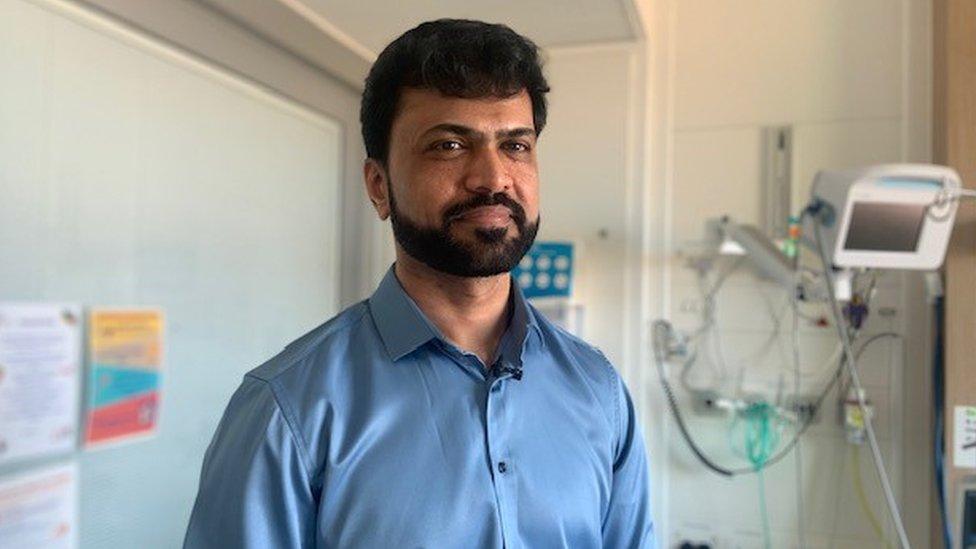Meet the babies helping to improve childhood health in Liverpool
- Published
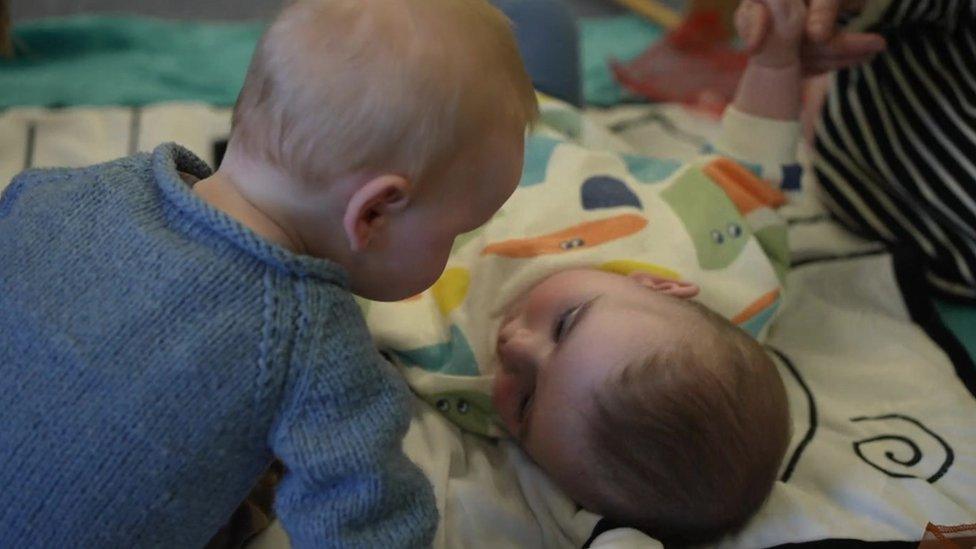
The study, which was the first of its kind in the UK in 20 years, recruited babies from across Liverpool
Babies on Merseyside have been taking part in a major new study aimed at improving childhood health.
Led by the University of Liverpool, the study followed 10,000 babies born across the region from the start of their mother's pregnancy through to the children's early years.
Oliver was the first baby born as part of the Children Growing Up in Liverpool project.
His mum Nina said the programme had been very rewarding.
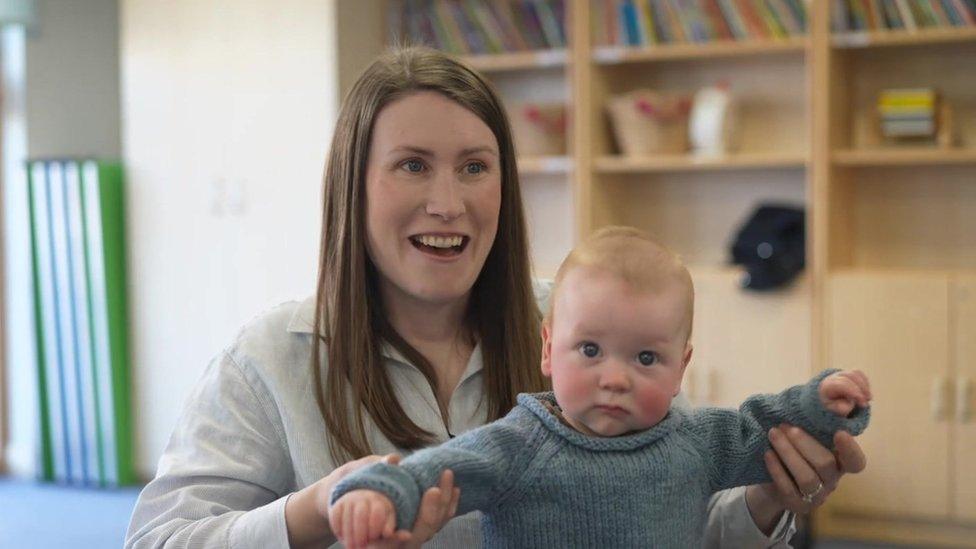
Oliver was the first baby born as part of the Children Growing up in Liverpool project
She said it was "by chance" that he was included and it had been "quite amazing".
"[To be] the first of 10,000 is quite special," she said.
"It's a really rewarding thing to be part of and I think the extra support in pregnancy... is really nice."
Hywel has also been monitored since he was in the womb as part of the programme.
"It didn't take up much of our time at all," his mum Emilia said.
"We went into the women's hospital twice while I was pregnant, once in the early stages and once towards the end.
"They took a couple of samples that were really non-invasive."
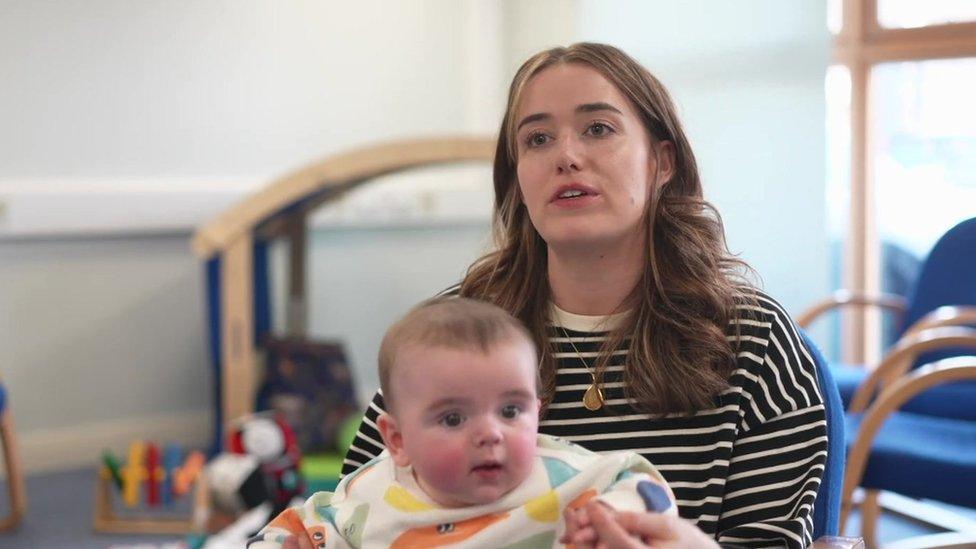
Hywel is one of the babies in Merseyside taking part in a major new study
The study, which was the first of its kind in the UK in 20 years, recruited babies from across the area.
It started when the mothers were 12 weeks pregnant and, subject to funding, the babies will continue to be studied throughout their lives.Oliver and Hwyel's development has been regularly checked by medics like Amy Mahdi, a senior research midwife at Liverpool Women's Hospital and part of the team leading the project.
She said researchers collected information on the babies' biological, physical and mental health to try and improve the health of children that grow up in Liverpool.
"What we know is that your likelihood of developing illnesses and diseases throughout your lifetime if you live in Liverpool is actually much higher than other areas," she said.
She said the project would use "questionnaires and biological samples" to gather data, while also "finding out what happens to mums while they are pregnant with their babies".
She said it would look at things that happen in the participants' early lives "to try and work out what it is that we can do to make recommendations for people's health [and] improve the health of children that do grow up in Liverpool".
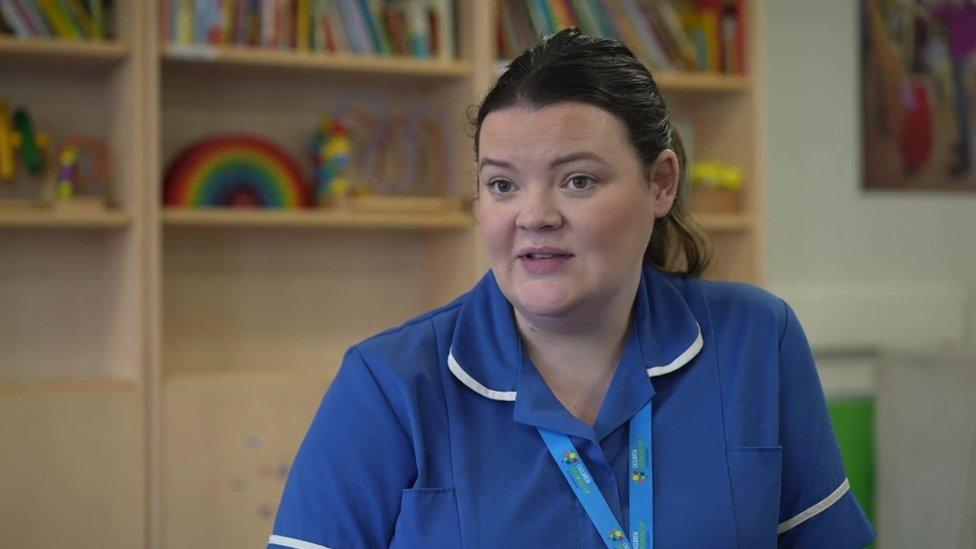
Oliver and Hwyel's development is regularly checked by midwives - like Amy Mahdi
Nina and Emilia said they hoped their son's information would help others and benefit future generations.
"For a baby that's born in 2023, there could be some long term benefits for children that are born in Liverpool in decades to come," Emilia said.
"It's just such a lovely thing to do," Nina said.
"And it's not just for your individual child, it's for generations and generations of Liverpudlians too."

Why not follow BBC Merseyside on Facebook, external, X, external and Instagram, external? You can also send story ideas to northwest.newsonline@bbc.co.uk, external
Related topics
- Published16 May 2023

- Published22 January 2024
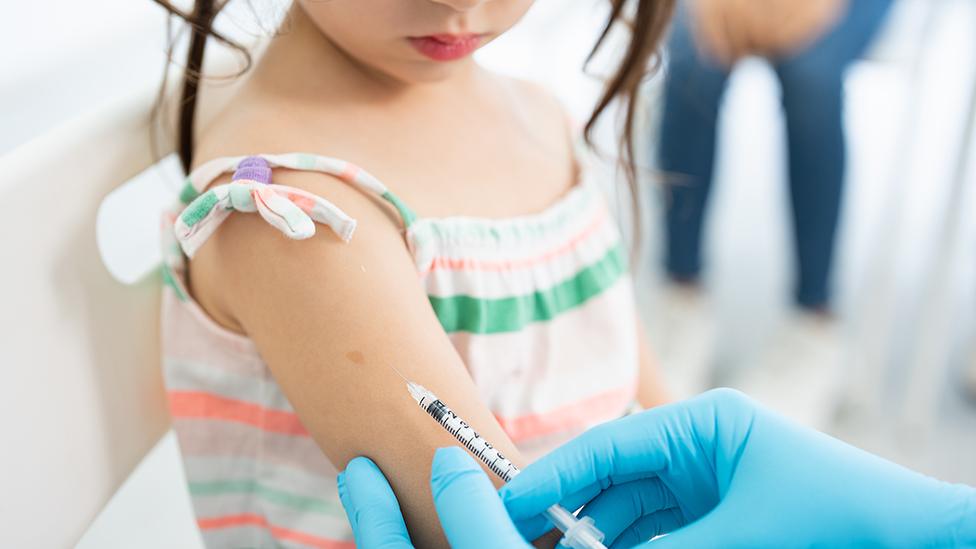
- Published3 April 2024
